The lost son
Stories about lost children explore our greatest fears. The big TV revelation this summer was an impressive Argentinean series produced by HBO called The Bronze Garden.
22 NOVEMBER 2017 · 11:11 CET
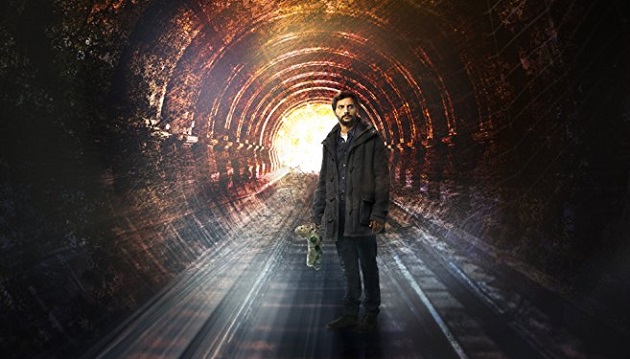
The nightmare of every father is to lose a child. Stories about lost children explore our greatest fears. The big TV revelation this summer was an impressive Argentinean series produced by the Latin American branch of HBO called “El Jardín de Bronce” (The Bronze Garden).
It has received very little publicity but this is the adaptation by the author Gustavo Malajovich of his first novel, which shows us Buenos Aires in all its glory.
Umberto Eco once said that crime fiction was “the most metaphysical and philosophical of the models of intrigue”. Its essence is even somewhat theological. The author of “The Name of the Rose” considered that even the demonstration of God’s existence by Thomas Aquinas was a masterpiece of police investigation.
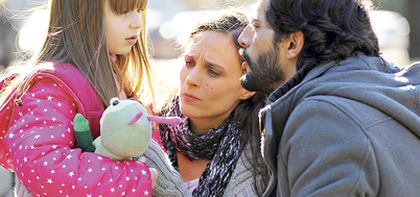
Thrillers ask the question “Whodunit?”, which is a question also raised by philosophy and theology.
At first, such stories looked at the who and the how, and perhaps the why. They did the chase and sought out the perfect criminal. The detective turned up on the scene and the plot followed the usual suspects. Now the focus has turned to the personal life of the investigator. The occasional enigma is just an excuse to get to know the character better.
THE FEAR OF THE UNKNOWN
This sub-genre, stories of disappearances, has become a common topic in many series, books and films. In this case, it is the story of a lost child. Following the initial, brutal drama of the disappearance, there follows a series of complications that draw the main characters into a turbulent emotional state, mixed up in the agony and the terror of their loss.
It does not however take us long to realise that there are deeper anxieties at work. One of our fears is not being able to protect our loved ones, when we feel defenceless and ignorant of the dangers surrounding us. In some stories, the family is a model of the society that surrounds it. Above all these are stories about the fear of the unknown and the danger that it entails.
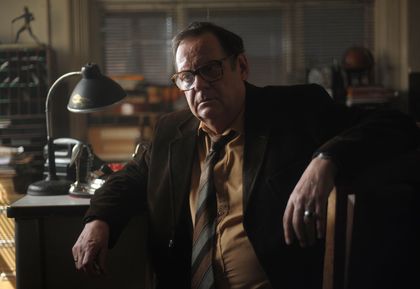
Another common feature of this type of fiction is that the main couple finds itself in a crisis situation. The couple is disintegrating. And as the action unfolds, time also becomes a fundamental element, due to the way in which our perspective on life changes.
Pain suddenly resurfaces, or reveals other losses in the characters’ lives. Compulsive behaviour such as returning to the scene of the crime again and again, metaphorically or literally. The main character refuses to abandon the investigation and tries to find some form of justice or reparation.
MYSTERIOUS BUENOS AIRES
Moira is a little four-year old girl who mysteriously disappears in the centre of Buenos Aires, together with her Peruvian nanny, as she is going to her friend’s birthday party, leaving her parents in despair. The police cannot find her, ushering in a peculiar private detective called Doberti, who offers to help them, in exchange for a reward. That is how the story of “The Bronze Garden” begins, after which we jump from one surprise turn to another.
We see the story from the perspective of the father, Fabián – an architect like the script writer and author of the novel –, who feels vulnerable and disorientated. Contrary to many of the series that are out now, this is a linear story, where we don’t have to follow the parallel story lines of a multitude of characters. This is closer to the traditional cinematographic model, which reminds me at times of the splendid Oscar-winning Argentinean film, “El secreto de tus ojos” (2010), although Joaquín Furriel is of course no Ricardo Darín!
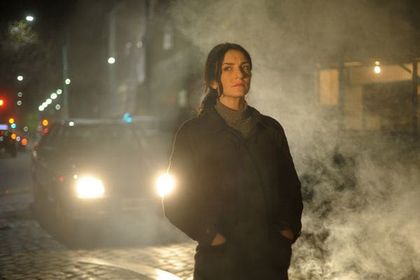
Another point of attraction is the mysterious, dark and perturbing turn given to Buenos Aires, which takes on character-like status in the story, rather than just providing the backdrop. This is where the troubled couple live. Their relationship is not good. At one point she says that she isn’t “at the bottom of the well”, she “is the well”. The actress playing her mother, is the great dame of Argentinean theatre, Norma Aleandro. In her opinion, the shattering impact of this story is caused by fear, “the fear of the characters, and one’s own fear on seeing where the story is going…”.
You would think that stories about lost children are nothing new, but as in the case of “The Bronze Garden”, they sometimes have an unexpected twist. The key lies in its leading characters. By showing us the relationship between solitary pain, loss and the secrets that we all keep, the series opens the door to deep reflection about the things that are irreparable in life and incurable in love.
DON’T LOOK NOW
One of my favourite books by the brilliant author Daphne du Maurier (1907 – 1989) – author of the novels that inspired Hitchcock’s “Rebecca” and “The Birds” – is “Don’t Look Now”, made into a film by Nicholas Roeg in 1973 and known as “Venecia rojo shocking” (Venice Red Shocking) in Argentina. It is the story of an unhappy couple that, on losing their third daughter, moves to a wintry Venice, where Donald Sutherland and the beautiful Julie Christie meet a ghost more terrifying than the spectre of their daughter.
Before that, a book that has inspired many of the great detective films is “The Searchers” by Alan Le May. Based real events in the Old West, John Ford takes to the screen the original story about an uncle (John Wayne) who looks for his lost niece. Kidnapped by the Comanche Indians, this American Civil War and Mexican Revolution veteran has to face up to his own ghosts in a conflict that inspired the character of Travis in Scorsese’s “Taxi Driver” (1997) – the Vietnam war veteran played by Robert De Niro, who decides to redeem an adolescent prostitute played by Jodie Foster.
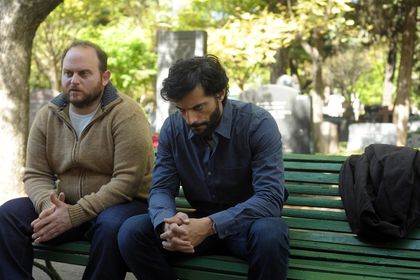
The screen writer of “Taxi Driver”, Paul Schrader, was a theology student like Scorsese who, obsessed by this story, returned to his place of birth, Grand Rapids, to portray a father character played by George Scott, who is similar his own father. This old man from a reformed church loses track of his daughter when she travels to a meeting of young Christians. His search in “Hardcore” (1979) introduces us to the world of pornography as the backdrop of a quest for redemption of someone who does not want to be saved.
Another director of the 1970s obsessed by “The Searchers” is Steven Spielberg. He saw it a dozen times while he was filming “Close encounters of the third kind” (1977). His stories about lost children fill his filmography in a world of orphans that reflects the divorce generation, which he himself experienced. This is the context of stories such as “Stranger Things”, where the divorced mother played by Winona Ryder seeks, like Spielberg’s characters, an answer about the disappearance of her son in a supernatural world.
THE LOVE OF THE FATHER
Stories like these show us that there is no greater love than that of a father dealing with the loss of a child.
When Jesus teaches us to address God as Father (Matthew 6:9) he shows us the enormous privilege of all those who receive him. By believing in Him, we “become children of God” (John 1:12). His love is faithful, as only the Father’s can be, even when His Son was subjected to the greatest humiliations.
God finds us when we are lost. By becoming Man he identified himself with our weakness (Hebrews 4:15-16). His broken heart shows us an unconditional love that frees us from hypocrisy (Matthew 6:1-4), but also from anxiety (Matthew 7:25-34). We have a heavenly father who cares for us.
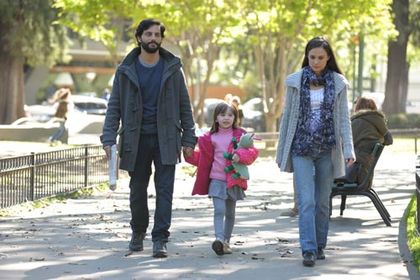
Discovering the love of God as our Father frees us of fear, mistrust and suspicion of feeling abandoned. Through faith, we are children of God, not simple slaves. We must live as such, not enslaved by fear, but in the freedom of the Son (Galatians 4:4–7). We cannot win his love, because there is nothing that we can do that can make him love us more or less than he has already loved us in Jesus Christ.
The Father endured the loss of His Son so that by trusting him we can be saved. Those who believe in Him will never be lost. We are sure of his love. A son is a son, whether he makes us feel ashamed. And if you are still unsure, “See what great love the Father has lavished on us, that we should be called children of God!” (1 John 3:1–2). If you do not believe this, one day you will see it!
Published in: Evangelical Focus - Between the Lines - The lost son
